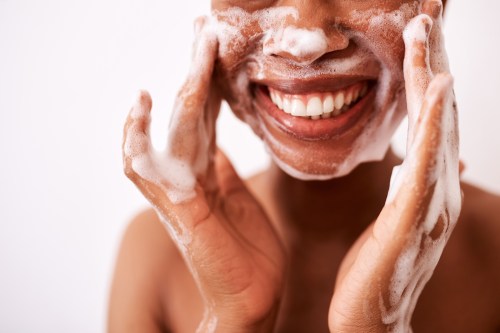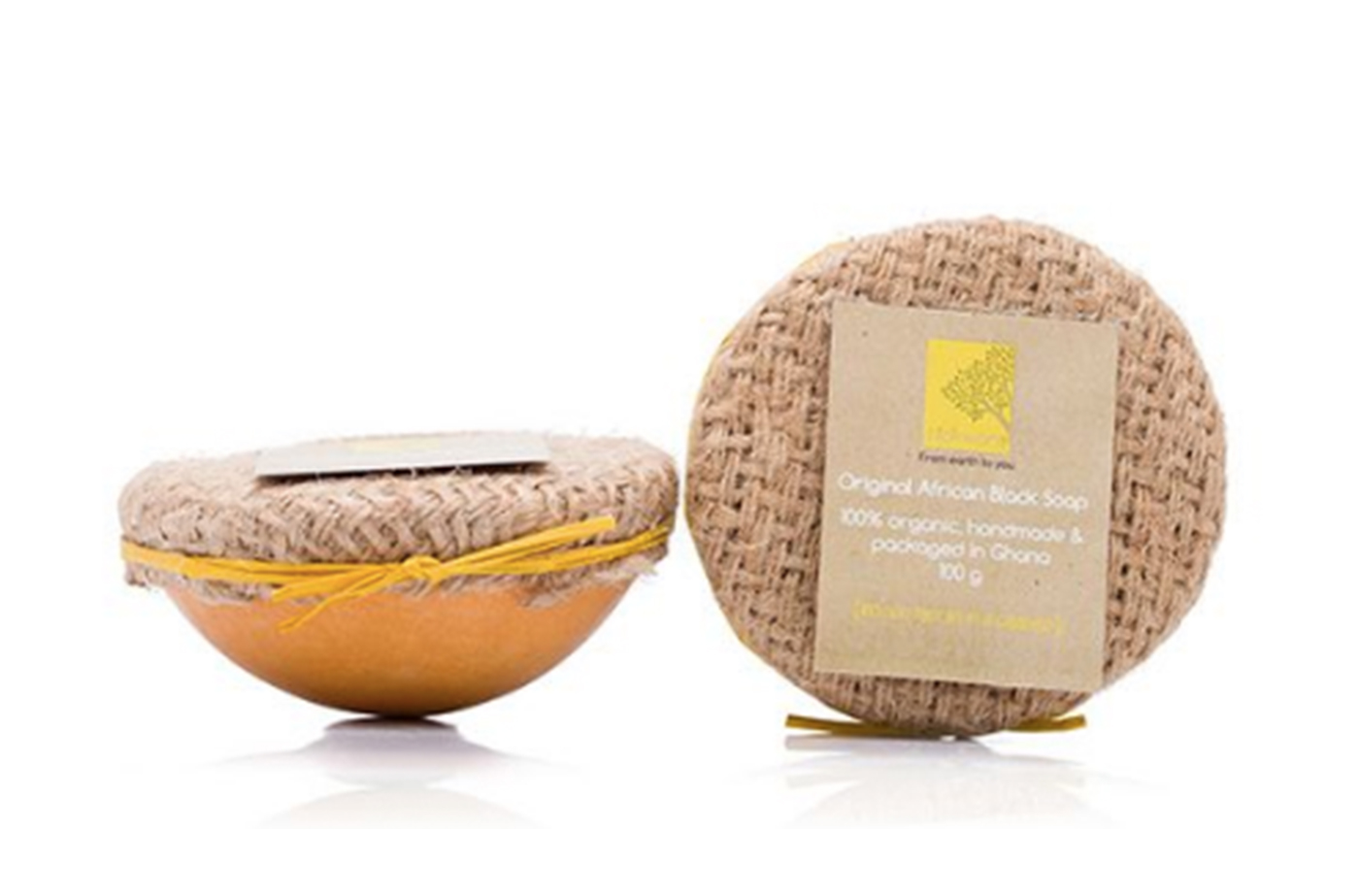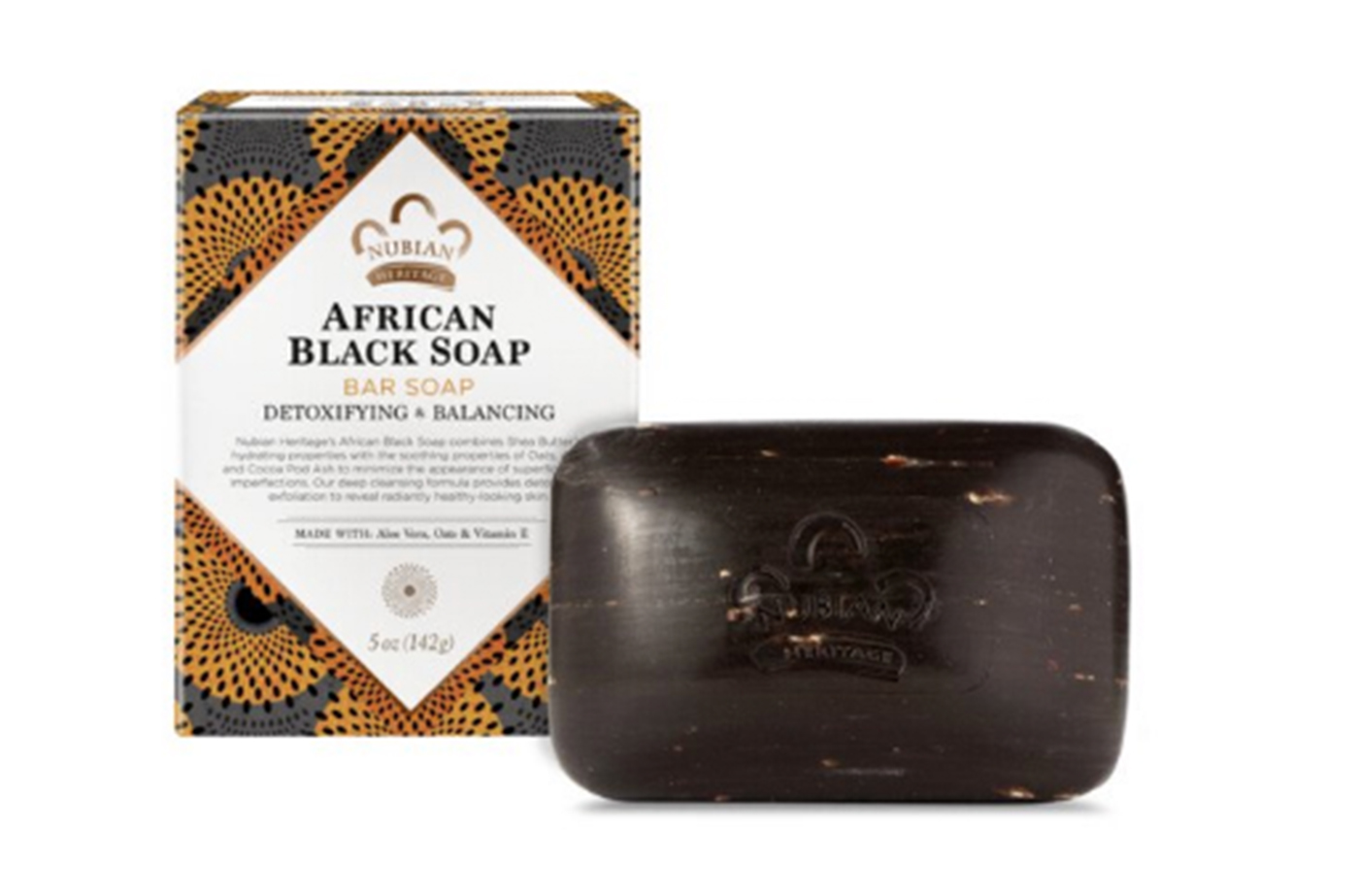Our editors independently select these products. Making a purchase through our links may earn Well+Good a commission
How To Use African Black Soap To Treat Your Most Frustrating Skin Woes
Pros weigh in on how to use African black soap to treat skin issues from head to toe, including things like acne and eczema.

African black soap is one of the most popular cleansers of the moment, but its of-the-moment status has plenty of history behind it. Its origin dates back centuries to the Yoruba people of Nigeria, where women mixed ash with oil and applied it to their skin. Since then, generations of women in Africa have relied on ose dudu (“black soap” in the Yoruba language) for the health of their skin. Now, as this skin-care staple becomes increasingly popular, American skin-care aficionados can choose from more varieties than ever.
Experts in This Article
Erica Douglas—known to the Internet as “Sister Scientist—is a chemical engineer and beauty product formulator.
Tutuwa is the founder of Nokware Skincare, a natural skin-care brand that sources its ingredients from Africa.
“African black soap is becoming popular in the U.S., given the rise in consumer interest and desire for clean, natural, and organic skincare,” says Tutuwa Ahwoi, founder of Nokware Skincare. “Seeing as it is made of 100% natural ingredients derived directly from earth, it is as clean and natural as it gets.” She adds that it’s also gained popularity because it offers a number of research-backed skin benefits, including helping with acne, uneven skin tone, hyperpigmentation, rashes, contact dermatitis, and psoriasis.
What is African black soap?
According to Erica Douglas, a beauty product formulator known as “Sister Scientist,” African black soap isn’t like regular soap—it’s the “super soap of all soaps.” The process of making it is unique—different cultures have different recipes—but each bar contains a few standard ingredients. “All African black soap will include an ash from the burning of palm leaves, cocoa pods, shea tree bark, and plantains, plus moisturizing oils like palm oil, coconut oil, and shea butter,” says Douglas.
The ash, she explains, is what sets the formulation apart from other cleansing bars.”The vitamin-rich ash is the magical secret that gives African black soap the ability to not just clean the skin, but to help soothe skin issues such as eczema and psoriasis, reduce hyperpigmentation, and help fight off bacteria that causes acne,” says Douglas.
The benefits of African black soap
1. It cleanses and exfoliates
At its core, African black soap is, well, soap, which makes it effective for cleansing the skin of dirt, oil, and impurities. The fine grains of the natural ash act as a gentle exfoliant, which helps to slough away dead skin cells as you wash your face. The result? Cleaner, brighter skin that is well-primed for the next steps of your routine.
2. It helps to treat acne
“One of the most effective benefits of African black soap is its ability to exfoliate and remove dirt, oil, and bacteria from beneath the skin,” says Douglas. As we know, these are some of the main forces that can cause pimples to pop up on your skin. “Not only does African black soap help to fight off acne once you see it, but it also can be used as a preventative measure,” she says.
3. It reduces dark spots and acne scars
Thanks to its natural oils African black soap is rich in both vitamins A and E, giving it the ability to both prevent and treat discoloration. Vitamin E is rich in antioxidants that help stave off dark spots from forming in the first place, and vitamin A ( which is what retinol is derived from) has been shown to help reduce the appearance of uneven skin tone by stimulating cell turnover.
4. It soothes skin
With a combination of and natural butters oils, African black soap supplements its exfoliating properties with skin-nourishing ones. Shea butter, common in many formulations, mimics your skin’s natural oils to give it a non-comedogenic, hydrating effect. Vitamin E works to repair your skin’s lipid barrier and offers conditioning benefits that will leave even the driest complexion feeling quenched.
This Parisian Skincare Brand Is Launching in the United States for the First Time—Here’s What a Derm Wants You to Know

We’re Calling It: Cleansing Balms Are the Face Wash of the Future—Here Are 3 to Add to Your Cart

This Is the One Product That Scarlett Johansson Always Keeps in Her Purse and on Her Bedside Table

5. It fights fungus
In addition to its skin-soothing properties, African black soap also has anti-fungal properties, says Douglas. So if you’re dealing with anything from dandruff to athlete’s foot, it might just be exactly what you need.
Can everyone use African black soap?
While African black soap is generally safe for all skin types, it is especially helpful for oily or acne-prone skin. “It has the natural ability to remove excess oil from skin like a magnet,” says Douglas. That said, since it is more alkaline than your skin, it can irritate dry and sensitive skin types; do a patch test to ensure your complexion can handle it before applying it to your entire face.
If pure African black soap is too harsh, you can opt for a gentler, more moisturizing option, like Nokware Shea and Baobab Oil Soap ($8), which has added oils to make it more suitable for sensitive skin. You can also choose a product that’s formulated with African black soap (instead of using the raw version on its own), like SheaMoisture ABS Bamboo Charcoal Detoxifying Foaming Face Wash ($10), which offers the same benefits without the risk of drying out your skin.
How to use African black soap
African black soap can be used on both the face and body, but Douglas recommends diluting it before applying it to your face. “Foam it up in your hands and apply the foam instead,” she advises.
Tutuwa suggests lathering the foam it onto your skin, massaging it for 45 to 60 seconds, then rinsing it with water. Use it as a part of your regular facial or body cleansing routine, then follow it up with your favorite serum and moisturizer.
Shop African black soap
1. Nokware Original African Black Soap, $8
If you’re looking to try African black soap in its purest form, look no further than this bar. Handmade in the Ghanaian village of Agona Swedru, it contains cocoa pod ash, palm kernel oil, and coconut oil—plus some of Africa’s “best-kept secret” herbs.
Shop now: Nokware Original African Black Soap, $8
2. Shea Moisture African Black Soap Soothing Body Wash, $11
More of a body-wash person than a bar soap one? This liquid cleanser harnesses the benefits of African black soap into an easy-to-lather body wash. It’s made with frankincense and myrrh to further calm and exfoliate skin, and it’s best used on oily complexions.
3. Nubian Heritage African Black Bar Soap, $4
Shop now: Nubian Heritage African Black Bar Soap, $4
For the ultimate in skin-soothing African black soap, this bar is infused with oatmeal and aloe, making it the perfect pick for dry, sensitive skin.
4. Alaffia African Black Soap, $9
Introduce African black soap into every part of your routine with this do-it-all cleanser, which can be used to wash everything from your hair to your hands.
Shop now: Alaffia African Black Soap, $9
For additional intel on how to deal with acne, check out the video below.
Want even more beauty intel from our editors? Join Well+Good’s Fine Print Facebook group (and follow us on Instagram) for must-know tips and tricks.
Sign Up for Our Daily Newsletter
Get all the latest in wellness, trends, food, fitness, beauty, and more delivered right to your inbox.
Got it, you've been added to our email list.







